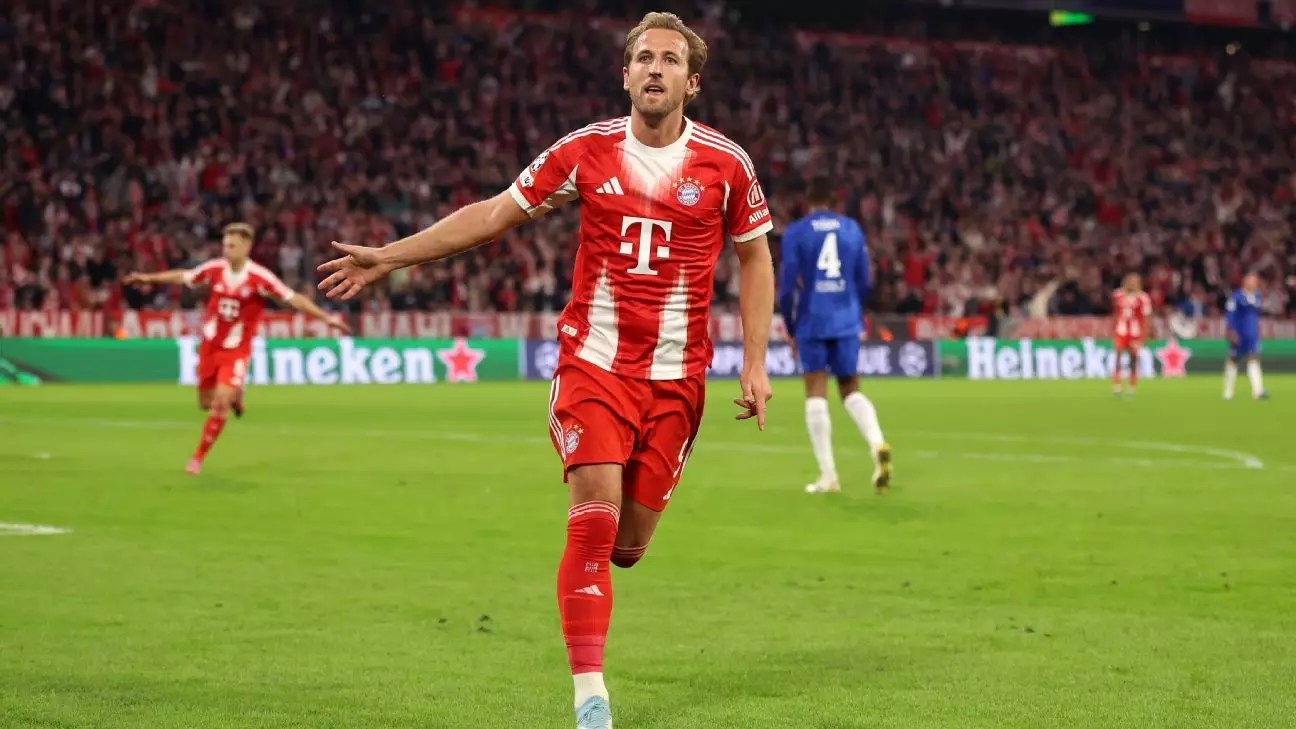In the landscape of elite sports, every setback is an opportunity to reassess, refine, and elevate. The recent clash between Chelsea and Bayern Munich exemplifies this brutal reality: the difference between victory and defeat often hinges on the smallest margins and the resilience of a team’s collective spirit. Observing such encounters teaches us a critical lesson—success is less about talent alone and more about the relentless pursuit of improvement amid adversity. In this game, the high-octane contest underscored that mistakes, especially defensive lapses, are often the bridge between greatness and failure. Yet, genuine champions don’t merely react to errors—they anticipate, learn from, and transcend them to emerge stronger.
Vulnerabilities Exposed: The Cost of Complacency in Competitive Sports
Chelsea’s recent defeat is a stark reminder that even promising starts can unravel rapidly when fundamental weaknesses are exploited. Their defensive fragility, highlighted by careless turnovers and positional lapses, served as a costly reminder that in football (and any sport), technical deficiencies can be magnified under pressure. The own goal resulting from a dropped ball, Kane’s opportunistic finishes, and Gusto’s costly giveaway are not isolated incidents but symptomatic of deeper issues—lack of cohesion, miscommunication, and perhaps overconfidence. These errors are revealing; they expose a team’s unpreparedness to contend at the highest levels unless corrective actions are swiftly undertaken.
The lesson here transcends the game itself. Teams that climb to the summit often do so by confronting their imperfections head-on, not just by celebrating their strengths. The fragile nature of Chelsea’s defense highlights the importance of strategic resilience—building capacity to withstand setbacks and rapidly recalibrate. It’s a lesson in humility: no matter how promising a journey starts, relentless self-criticism and adaptation are necessary to sustain excellence.
The Myth of Invincibility: Bayern’s Understated Dominance Amid Challenges
While Bayern Munich’s performance appeared smooth and commanding, behind the scenes, their season paints a picture of resilience amidst adversity. Despite missing key players like Musiala, Davies, and Itō due to injuries, their capacity to maintain high standards underscores a fundamental truth: adaptability is the backbone of sustained success. The club’s recruitment efforts—bringing in players like Díaz, Tah, and Jackson—demonstrate a proactive mindset, not resting on laurels but constantly seeking to bolster weaknesses.
Moreover, Bayern’s tactical approach reveals a strategic flexibility that is often underestimated. The team’s ability to rotate personnel without losing momentum, coupled with a disciplined yet innovative style of play, embodies the essence of champions in modern football. Their capacity to remain calm amidst internal tensions—highlighted by leadership comments and squad adjustments—speaks volumes about their mental toughness. Bayern’s resilience proves that true dominance doesn’t come from a flawless run but from the ability to adapt, endure, and capitalize amid chaos.
Leadership and Mental Fortitude: The Driving Forces of Endurance
At the core of resilient teams are leadership qualities—both on and off the pitch—that create a culture of perseverance. Bayern’s veteran players, such as Kane and Kimmich, exemplify this ethos through their professionalism and ability to inspire confidence. Kane’s continued scoring record isn’t just about goal tally; it’s a testament to his relentless mindset and unwavering self-belief. Similarly, Kimmich’s acknowledgment of a “thin” squad underscores a candid awareness that fuels collective commitment to overcoming limitations.
Chelsea’s experience, in contrast, reveals that leadership and mental toughness are equally vital. The team’s struggle to respond to adversity, especially after conceding goals, suggests a need for more cohesive internal communication and psychological resilience. A team’s capacity to learn from setbacks rather than be overwhelmed by them is what distinguishes fleeting flair from lasting greatness. Developing resilience—both individually and collectively—is not an innate trait but a cultivated skill rooted in unwavering self-criticism and strategic adaptation.
The Path Forward: Embracing Growth and Redefining Success
Both Chelsea and Bayern illustrate a universal truth: setbacks do not define a team’s future unless they’re used as catalysts for growth. Chelsea must examine its defensive strategies, foster a culture of accountability, and accelerate the integration of new players to accelerate cohesion. Meanwhile, Bayern’s challenge is to maintain their internal harmony and navigate injuries without losing their competitive edge—an ongoing balancing act that demands strategic agility and mental toughness.
Ultimately, the narrative of success in sports—and life—is written by those who refuse to accept complacency. Champions are forged in the crucible of adversity, tempered by their capacity to critique themselves ruthlessly and evolve continuously. As Bayern Munich demonstrates, sustained dominance involves navigating uncharted waters with confidence and resilience. For Chelsea, the journey is about transforming frustration into fuel—embracing their imperfections and sharpening their resolve with relentless honesty.
The true power lies in the readiness to confront one’s limitations and the courage to pursue greatness despite them. In this relentless pursuit, the question isn’t whether you will stumble, but whether you will rise, learn, and persevere. That, above all else, is what separates fleeting success from enduring legacy.


Leave a Reply